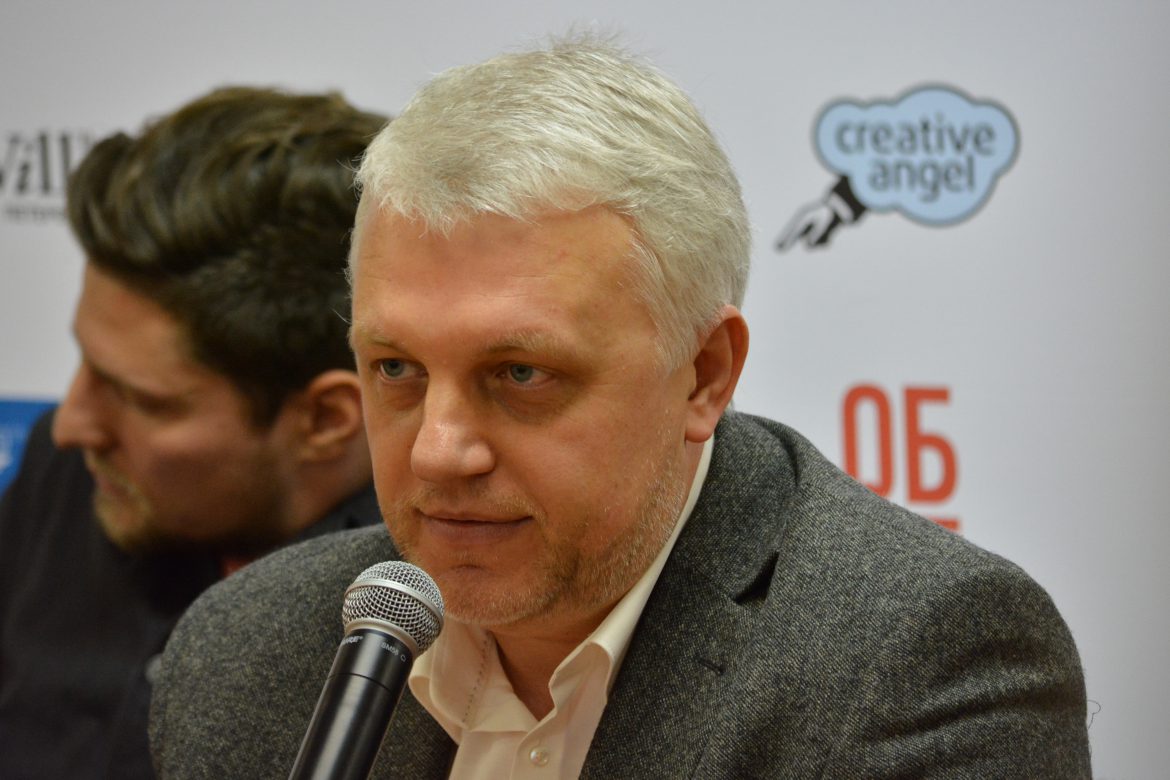
Here is what you need to know about Pavel Sheremet's murder one year after:
Investigators presumably did ton of work, but found no suspects. Arsen Avakov, Ukraine's minister of interior, and National Police officials have been holding the press-conferences regularly, but there were little to no results to talk about. The last big press conference took place on 8 February 2017. According to Committee to Protect Journalists (CPJ) infographics based on the figures announced at this event, 35 police investigators and 3 prosecutors have been working on the case. The investigators conducted 1800 interviews, reviewed 150 terabytes of video footage and carried out 280 evaluations of Sheremet's journalistic work. Nevertheless, zero suspects were identified. The situation hardly changed since. Artem Shevchenko, interior ministry's spokesperson, announced on 20 July there were still no suspects in this case.
Numerous journalists have conducted their own investigations. A most noteworthy one is a film called "Killing Pavel" produced by "Slidstvo.Info" investigative unit and the international Organized Crime and Corruption Reporting Project (OCCRP). It premiered on 10 May 2017. Investigators spotted Igor Ustimenko who worked for the SBU at least until 2014 on the surveillance footage. Ustimenko was near Sheremet's home for several hours on the night when an explosive was placed under the journalist's car. However, neither Ustimenko, nor SBU commented on this. Ustimenko was questioned on 15 May, but he was not persecuted.
President Poroshenko promised to take this case under personal responsibility, but he did not. A year ago, Petro Poroshenko, Ukraine's President, called the journalist's death a "terrible tragedy" and ordered specialists from the US and the European Union be brought in to assist the investigation. Nevertheless, on 14th May, during his annual press-conference, Poroshenko stressed he was "not happy" about the pace of Sheremet murder investigation. At the same time, he reminded that he is personally cannot be in charge of the investigation, as this is a task of the police. No statement from the President came on the anniversary of the tragedy.
Sheremet's family and Ukraine's civil society have become quite sceptical about the investigation. Elizaveta Sheremet, Pavel's daughter, stressed in an interview with Hromadske that the investigation is utterly unsatisfactory for the entire Sheremet family. "Official reports that have been made are not meaningful. They talk about how many resources were used in the investigation, but overlook significant things that make up the investigation, and answer questions of Who? How? And when? This is a very serious problem from my perspective," Elizaveta Sheremet emphasized. She noted she expected any result either from these organizations without the involvement of international parties. Mustafa Nayyem, Ukrainian MP, underlined in his article for Novoe Vremia that Ukrainian society is even not certain if Sheremet case is a priority for the security services.
It is most likely that Sheremet was killed for his professional activities. CPJ report published on 12 July names three major lines of investigation: Belarus, Russia, and Ukraine. According to the report, governments in all these states could have had a motiv However, Belarus and Russia harshly denied any accusations, and Ukraine's primary line of investigation of Russian involvement provided no clear evidence.
On 20 July, events dedicated to Pavel Sheremet's memory have been held both in Kyiv and Minsk. Journalists and activists demand the truth. However, there are growing fears that Sheremet's case might go down the Gongadze scenario (Georgiy Gongadze, prominent Ukrainian journalist and founder of Ukrayinska Pravda, has been kidnapped and killed in year 2000. Three murderers were prosecuted five years later, but those who ordered this murder were never found).
